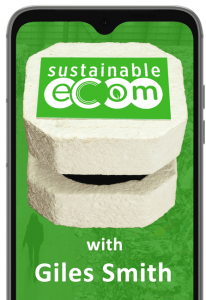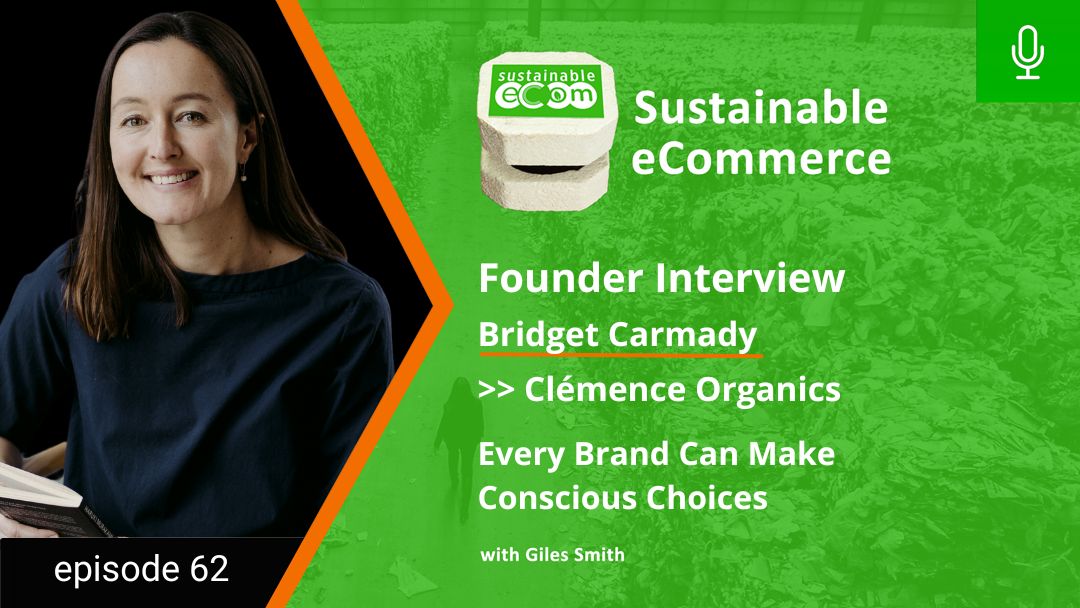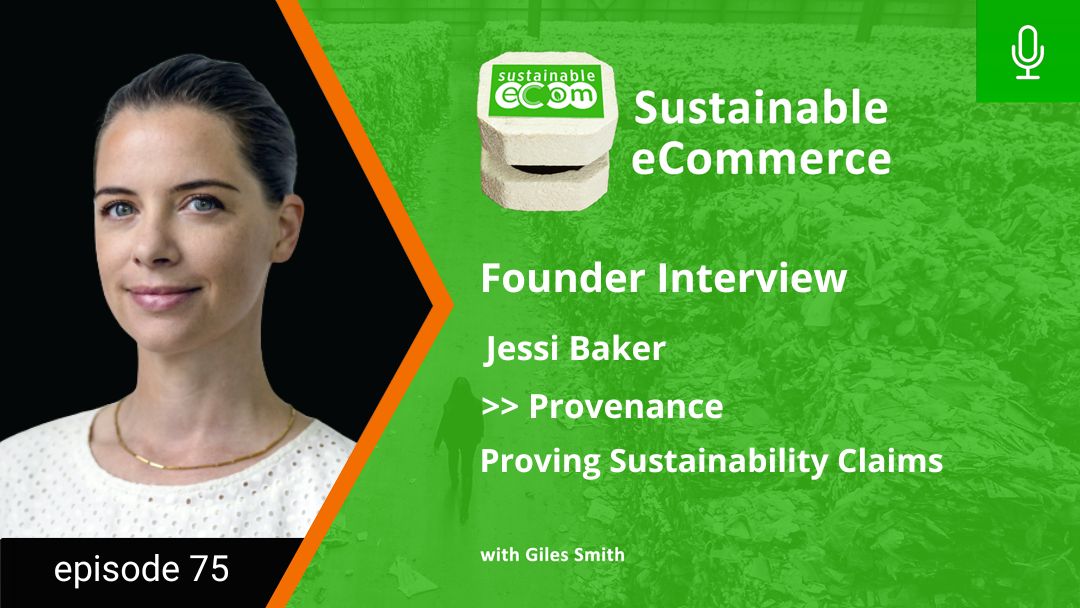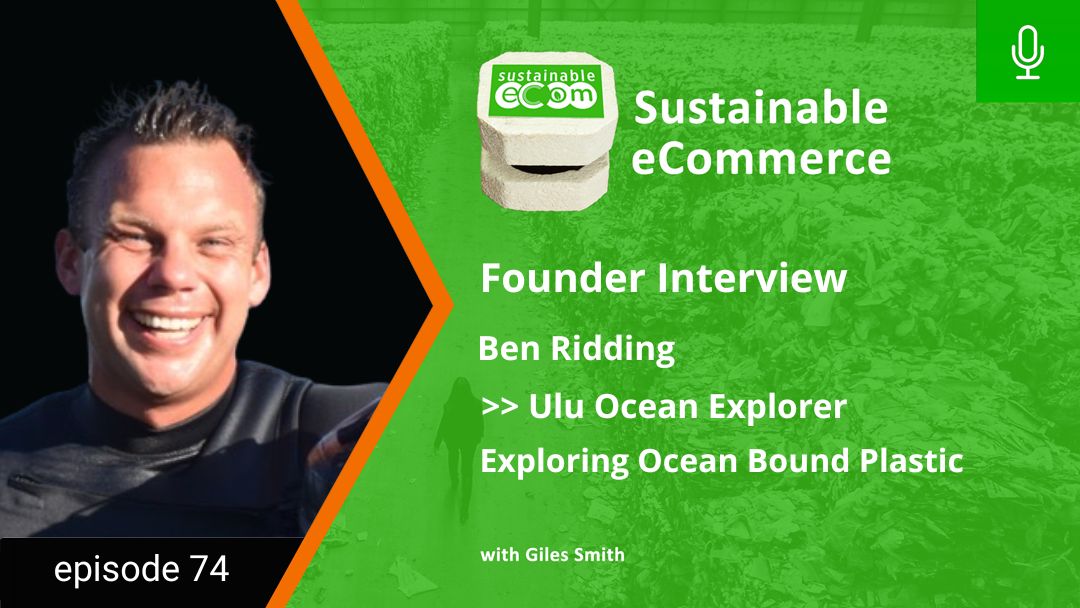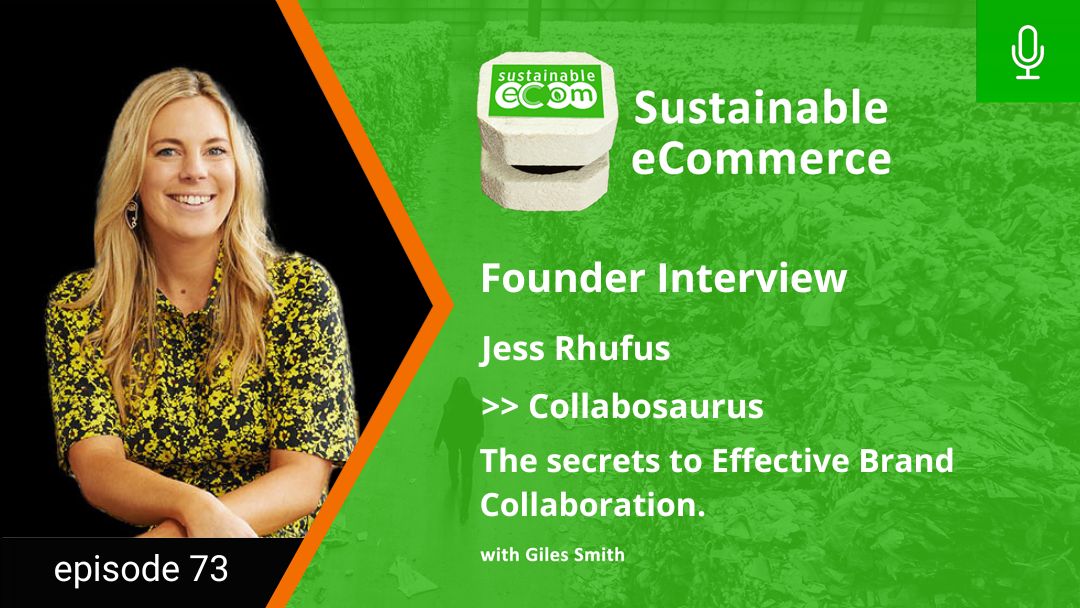Sustainable Ecommerce Podcast Episode 62
Obviously its inspiring and sexy to chat with the founders of brands that have been built from the outset to solve sustainability problems. Whether that’s actively using up recycled materials and eliminating trash or working on minimizing food waste or turning into something of value, they always make for compelling episodes.
But I never want to lose sight of the fact that every brand has an important part to play in how we collectively build a healthier planet. So, I think it’s really important to cast a hero spotlight too on the brands who’s core Purpose lies outside sustainability, yet still weave conscious, sustainability-focused approaches into everything they do. And today’s guest is a brilliant example of that.
Bridget Carmady is the Founder of Clemence Organics, a skincare brand built on the backbone of certified organic ingredients and Bridget’s experience as a Naturopath. I mean, that’s awesome in itself, but if you isolate the brand Purpose from how Bridget navigates the choices she’s making on everything from suppliers, to primary packaging, to logistics, you’ll see exactly what I mean when I say that any brand can make conscious and sustainable choices.
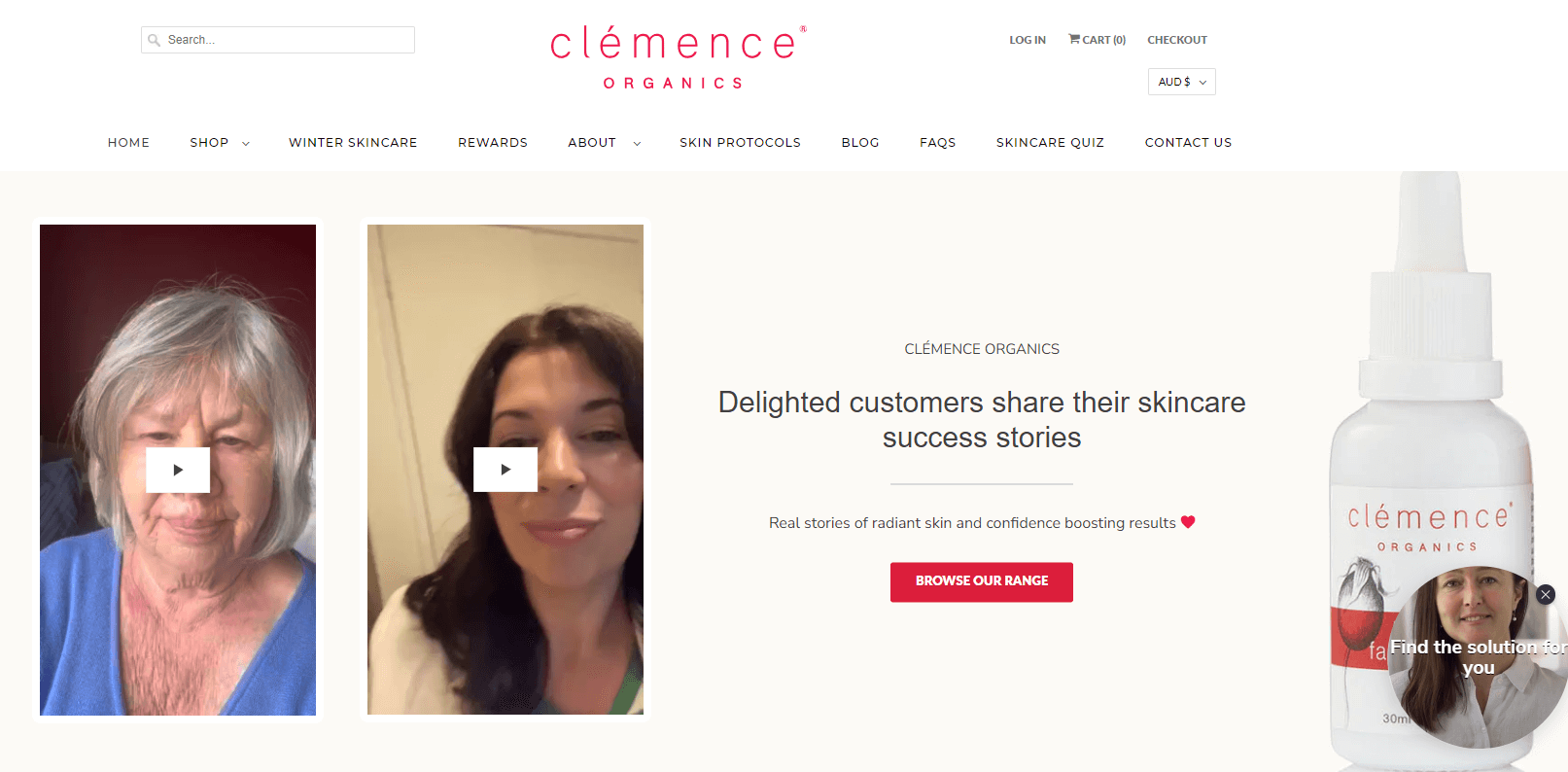
About Bridget Carmady & Clemence Organics
Bridget started her career is a Naturopath, operating a successful Naturopathy clinic in the Blue Mountains. She started creating skin care products in her clinic after designing a skin balm for her father who was undergoing radiotherapy treatment for cancer. As momentum and demand for her treatments grew, she eventually had to decide between operating her clinic business or growing her brand and helping a much broader selection of customers, and that’s where Clemence Organics really accelerated.
Getting Organic Certification
For Bridget being a health professional, healthy skincare means clean, natural, chemical-free and preservative-free, or in other words as close to ‘food’ as possible. She chose to take her products Certified Organic as the gold standard in proving how clean they really are. Anything in the Clemence Organics range not certified organic is still 100% Natural.
Getting the certification is purposefully challenging. There are only a few manufacturers in Australia that can do that. To gain the Certified Organic status on products you have to go through every ingredient and collect evidence from the suppliers that every step is organic. The ingredient needs to be grown organically, free of chemical pesticides etc, then picked, processed and packaged without chemicals. When the ingredient gets to a wholesaler, they also have to be licenses to hold and store organic ingredients without contamination. The final blending factory has to prove absence of chemicals, prove that they store it only with other organic ingredients too, especially since many manufacturers also make non-organic products.
To be able to claim Organic Certification on the final skincare product, it has to be made from at least 80% certified organic ingredients, where Clemence Organics start at 87% and goes up to 100%.

Choosing Sustainable Primary Packaging for Skincare Creams
To Bridget, it never made sense to create clean, natural skin care products only to package them in something that was bad for the environment, or couldn’t be composted or recycled.
Starting out as a new business, Bridget chose aluminium and glass as her packaging rather than plastic, though even those choices presented challenges. Though it has a high initial carbon footprint, Aluminium is one of the most highly recyclable materials and in fact the majority of aluminium in circulation today is already recycled (which has a lower footprint). It is also lightweight, helping to reduce the carbon footprint of distribution. Particularly for skincare applications, aluminium jars make ideal packaging as they are water tight, air tight and don’t let any damaging UV rays spoil the contents during storage.
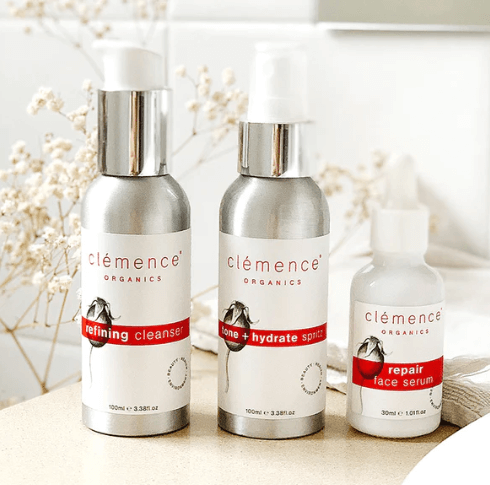
Choosing glass can be tricky for skincare. Opaque glass containers are needed to prevent UV light spoiling the contents, but coloured, opaque and lined glass is generally not recyclable in curb-side pick up. Clemence organics accepts back their few class containers to recycle or reuse.
Historically, Clemence Organics used glass more frequently until the Pandemic meant they couldn’t secure a reliable supply from their Chinese manufacturer. These were replaced by a local manufacturer in Australia that uses at least partly recycled plastic to make the tubes, and the common polymer is easily recyclable in the home recycle bin.
With all that said, Bridget continuously strives to improve their packaging choices, and even now, 8 years after founding the brand, she has chosen to work with a sustainable packing consultant to take her packaging to the next level.
Towards Refillable Skin Care
Clemence Organics is actively exploring the possibility of refillable skincare. However the entry point for refillable options is a challenge from scale point of view. Additionally, the plastic pouches, often used a refills, are not usually easy to recycle which means that you have to arrange to take them back and handle the recycling in-house.
Unfortunately, Clemence Organics can’t use biodegradable packaging because the ingredients are too sensitive and that solution is not suitable of Certified Organic creams. There are some interesting innovations that may be promising for the future, including some coffee-pod like packaging but for now these are not widely available and still experiencing teething problems in plastic waste and ingredient protection.
Shipment Packaging Is an Easy Starting Point.
There are some many options for shipment packaging now that making a sustainable choice is easy. Clemence Organics use recycled paper shipping boxes with plant-based and non-toxic printing & labels. That makes them either recyclable or compostable to all customers. Inside the box they use either tissue paper or corn-starch packing peanuts which are both home compostable. Finally, shipping is carbon neutral via Australia Post.
How to use Sampling Effectively in Sustainable Skincare
Ince again, it can be challenging to find a low-waste and sustainable solution to sample packaging. Most small-size sample sachets are not recyclable, being made from soft plastic. Choosing refillable, recyclable or reusable sample containers was important.
There are sustainability benefits of using samples though, especially in skincare. If a customer buys a full-sized product and the doesn’t like it or doesn’t experience the benefits they were hoping, both the ingredients and the larger packaging are wasted.
Rather than free ‘sample-sizes’, Clemence Organics have moved to simply producing a smaller size option, which delivers a few weeks-worth of product, enabling the customer to try it without the investment in the full-sized item. They’ve found a much higher conversion to the full sized product from this more extended ‘paid sampling’ strategy.
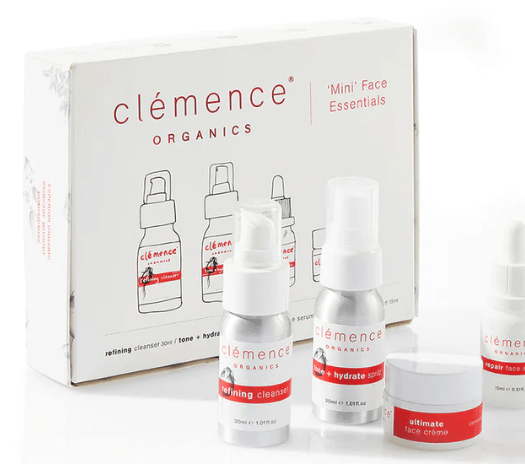
What’s next for Clemence Organics?
The last few years have brought some great growth, including internationally. Clemence Organics is now in Japan, Hong Kong and China and they are mostly focused on continuing to develop their international markets. Their main strategy is via distributors rather than trying to manage online marketplace accounts.
To explore their products head over to https://clemenceorganics.com/
Top Takeouts
Well, let’s just get stuck straight into Clemence Organics as a case study in how small & medium brands can tackle their approach to primary packaging.
I’ve picked a skincare brand specifically for this because finding packaging solutions for oils, creams, lotions & gels is about the toughest challenge. They need to be air-tight, water tight, light proof, durable and often squeezable. This is where genuinely, plastic does excel.
The easiest, fastest and cheapest thing to do is to use the plethora of ready-made plastic solutions available.
Yet right from the start, Bridget’s philosophy has always been that it doesn’t make sense to use organic ingredients and then damage the environment with careless packaging choices. That doesn’t mean to say that perfect options are even available, especially given the constraints of ingredient protection, operational scale and predictable supply. Far from it.
But at each stage, Bridget has made the best choice she could. Even now, 8 years in, she’s still seeking better ways, and as you heard has engaged a sustainable packaging consultant to help her lift the game once again.
So, what’s the lesson here? Well, as the title suggests, it's about making Conscious Choices. It’s about taking the best option that’s reasonably within your grasp.
And, that applies to everything. Paper packaging? Choose recycled paper. Need bottles or jars? Perhaps aluminium is better than plastic. Can’t quite afford to install solar, switch to a renewable energy supplier.
Progress is better than perfection, because the pursuit of perfection leads to inaction and paralysis, whereas progress is made through taking action.
But, as Bridget showed us, progress is perpetual. Regularly review your choices to see if new, better options present themselves as technology evolves and your buying power grows.





